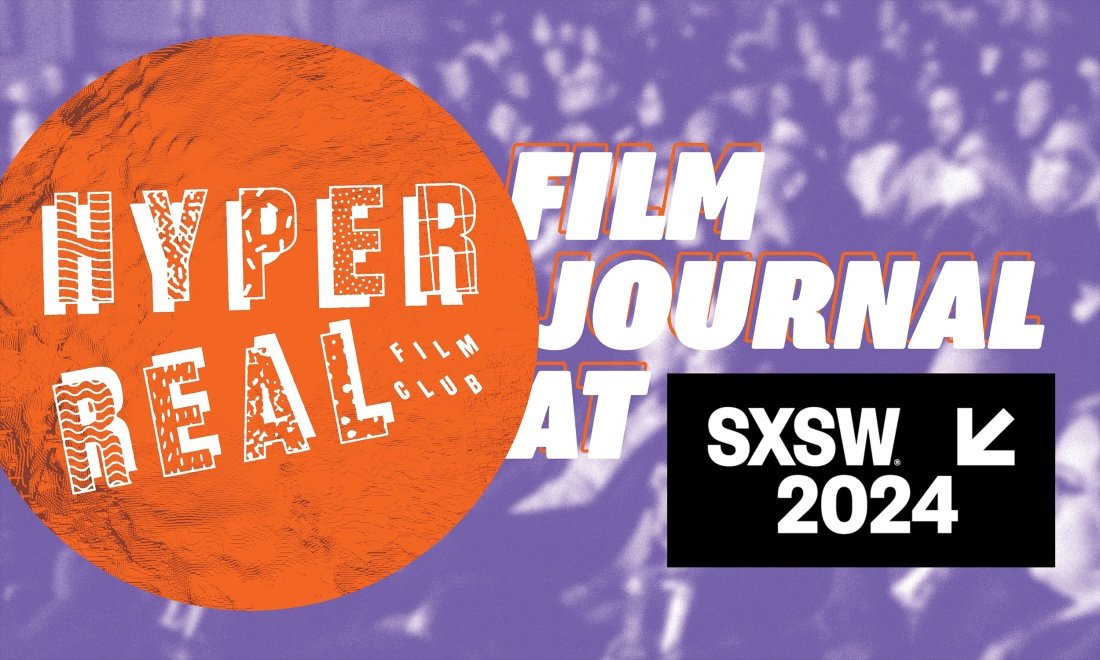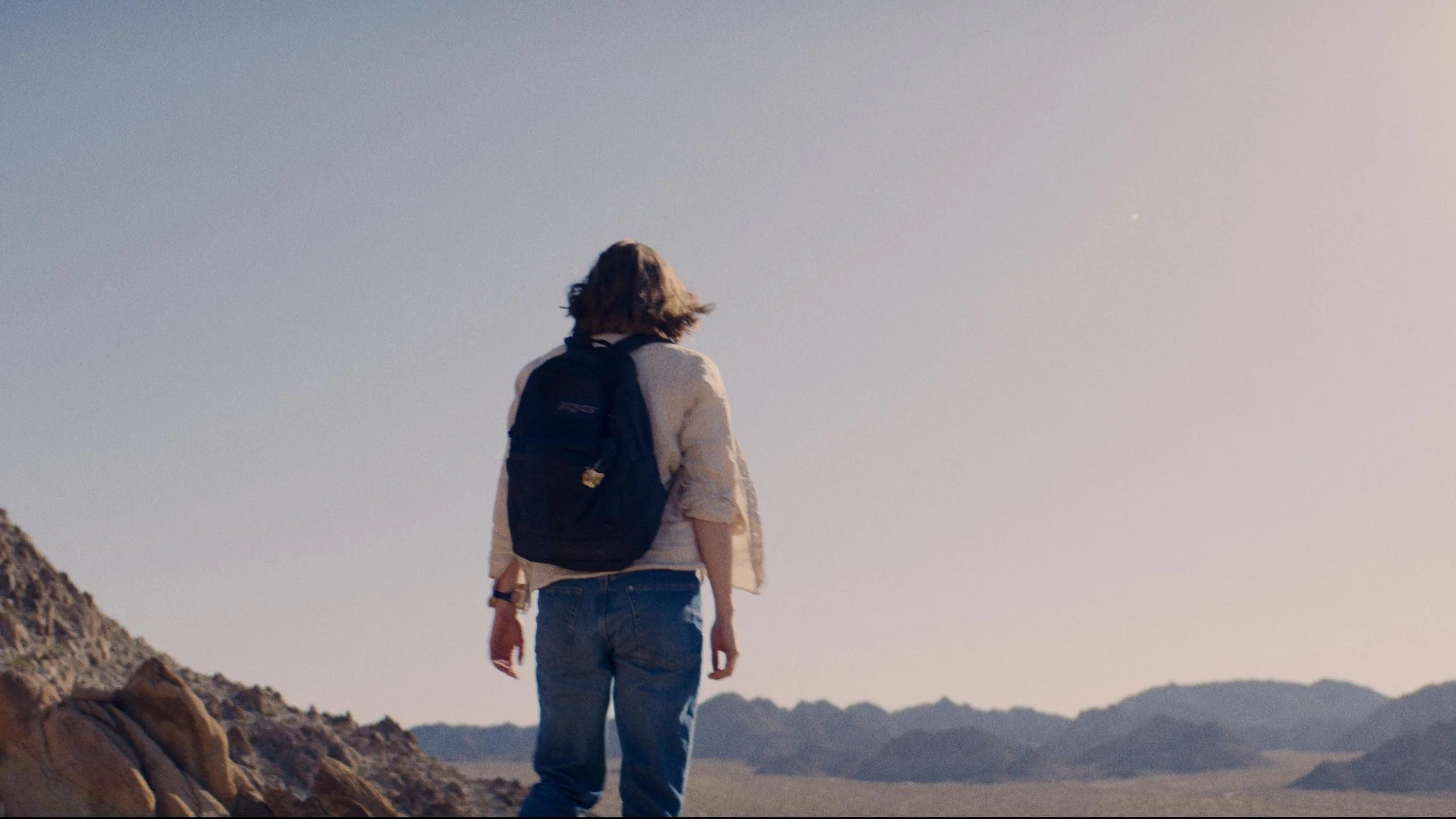Long Dark Night of the Soul in the Desert: Desert Road Review
There's a stretch of Southeast California past Los Angeles and Palm Springs, as the artificial cities built in the desert turn into true desert, where you could drive your car off the road and not be found for days or even weeks. Cell service falters and, depending on which stretch of the road you're on or which shortcut you decided would be worth the risk, there might not be another car visible on the asphalt for hours. It's a deeply isolating area, even without any supernatural or sci-fi dangers.
Unfortunately for Clare (Kristine Froseth), her car accident and the isolated "community" she's found herself stuck in has more going on than just hot desert and boulders. Desert Road, which had its world premiere at SXSW, follows Clare as she finds herself trapped next to her crashed car within walking distance from a gas station and a fenced-off factory. If she walks away from her car toward the desert, she finds herself walking past the factory toward the gas station and her car. If she walks toward the gas station and the factory, she winds up on the desert road heading toward her car from the opposite direction. If she climbs the nearby mountain, she sees the mirror image of the same gas station, factory, and crashed car. She's trapped with no cell service and no idea what's going on.
It's an intriguing hook to begin with, but director and writer Shannon Triplett does an excellent job setting the stakes even before the car accident sets off the central premise. Clare is driving home to her mom's house, having given up on her dreams of being a photographer in Los Angeles. When she stops off at a gas station, the clerk Randy (Max Mattern) is just a little too friendly, breathing just a little too heavily, standing just a little too close. It's the kind of subtle threat that women, especially women driving alone through an empty desert town, have to deal with all too often. There's no smoking gun that allows Clare to definitively know that he's a creep, but the vibe is palpably there, and it's enough to introduce an element of danger when she finds herself trapped within walking distance of the gas station and Randy.
It's that subtlety of writing and directing that really helps Desert Road stand out among so many other indie movies with similar premises. Clare's stuck in an illogical situation, but she's not dumb—she takes in each kernel of information she's able to glean from her experiments and makes the next logical step. When she breaks down emotionally, it's because any rational human would in a senseless situation. Froseth's performance, especially considering she's carrying multiple scenes throughout the film by herself, showcases a subdued charisma and deeply sympathetic character. You want Clare to escape, and you end up thinking through the same logic traps and offbeat solutions that she ends up trying herself.
Thankfully, the claustrophobic atmosphere of the film's situation doesn't extend to the visuals of Desert Road. Cinematographer Nico Navia is able to beautifully capture the beauty of the desert and the way that it changes as the sun rises and sets. It nicely ties into Clare's dream of getting that one perfect photo and keeps Desert Road from being visually repetitive even as Clare ends up literally repeating movements and days.
And while the specifics of Clare's situation are best left unspoiled, it's worth noting that Triplett is able to smoothly tie everything together into a third act that's thrilling, scary, heartwarming, devastating, and even uplifting. It's a magic trick of tone control balancing it all and delivering on foreshadowing provided so subtly earlier in the film that you likely didn't even notice. "Puzzle box" indie films, where a viewer is teased with the explanation behind a strange supernatural event in a confined space, can sometimes feel like a joke you never want to hear a second time. All buildup to a punchline that never satisfies. With Desert Road, Triplett is able to keep the focus on Clare's emotional journey so that when the explanation is finally revealed, it remains central to her arc. It's the rare kind of movie that makes you immediately want to watch it again to see how certain events were set up and to marvel at how seamlessly it all comes together.



Ziah is the founder and former editor-in-chief of the Hyperreal Film Journal. He can usually be found at Austin Film Society or biking around town.